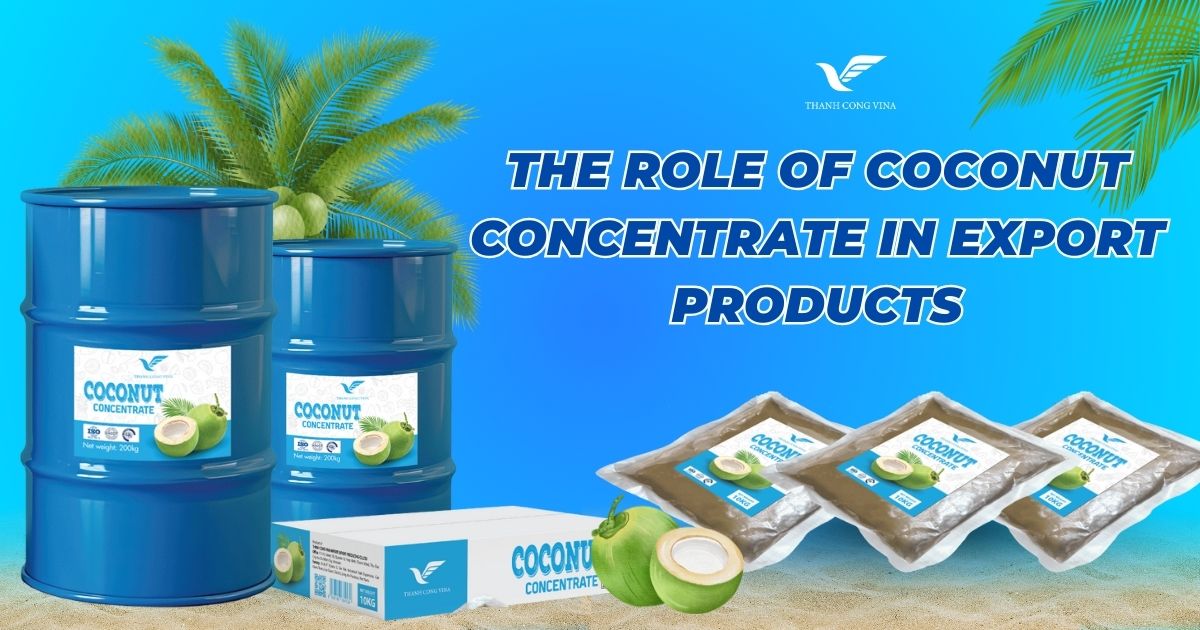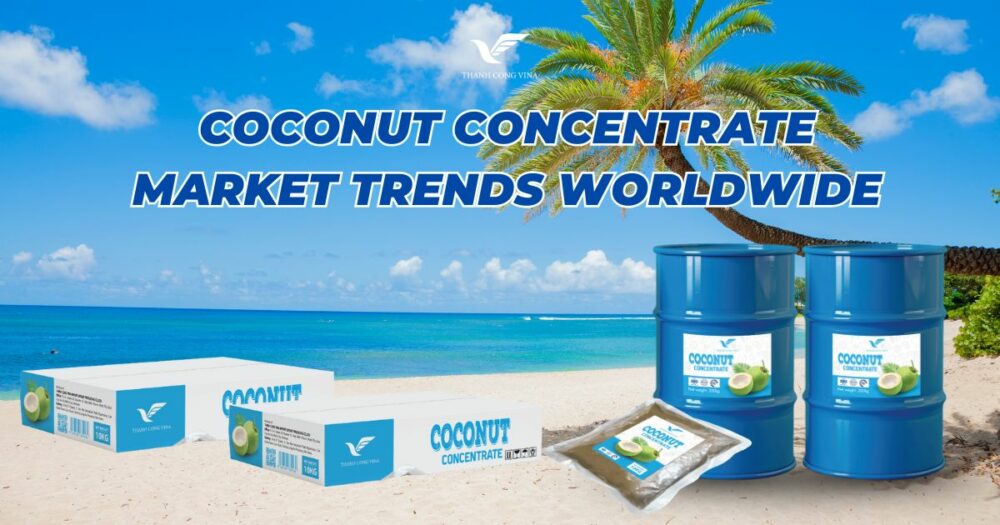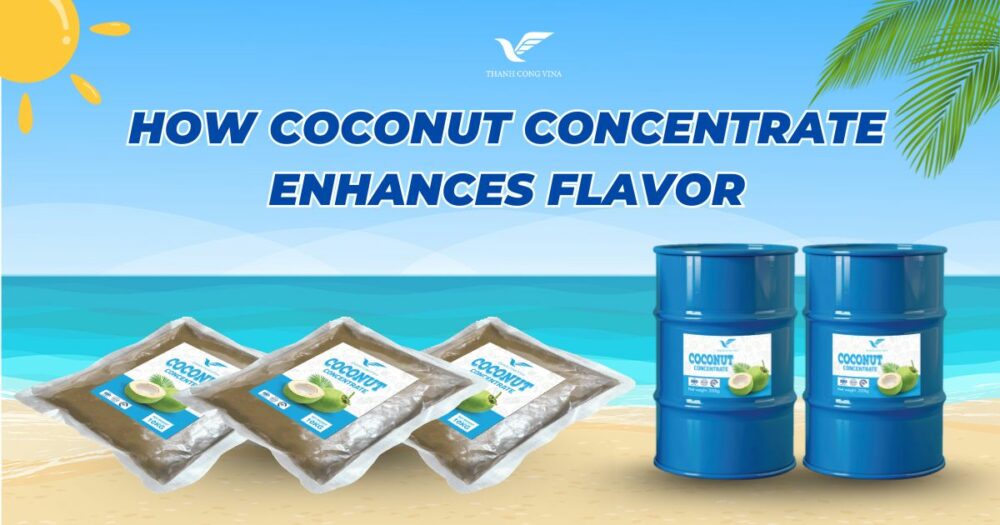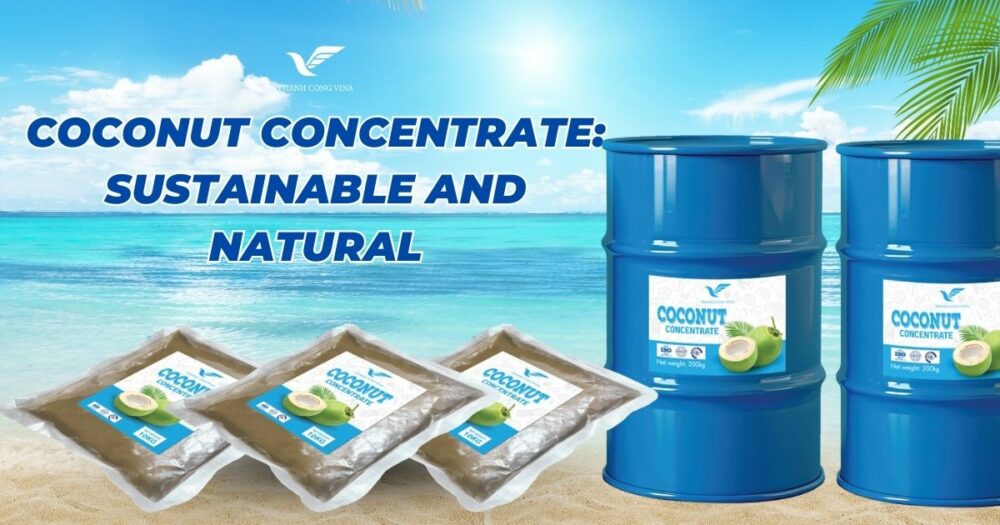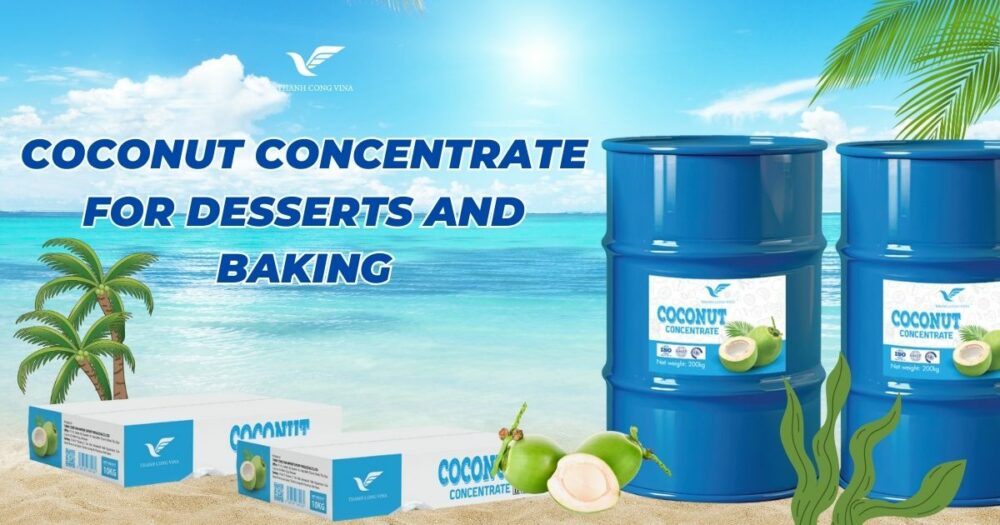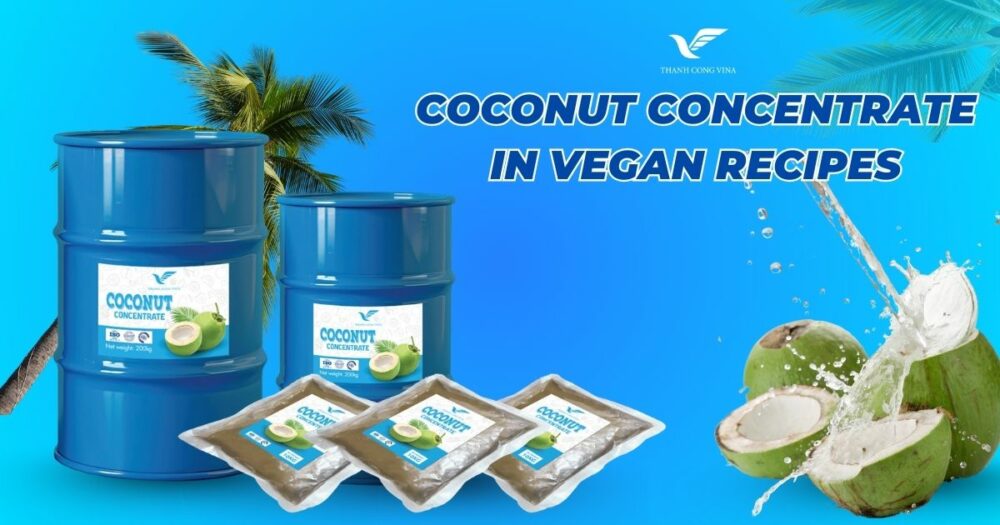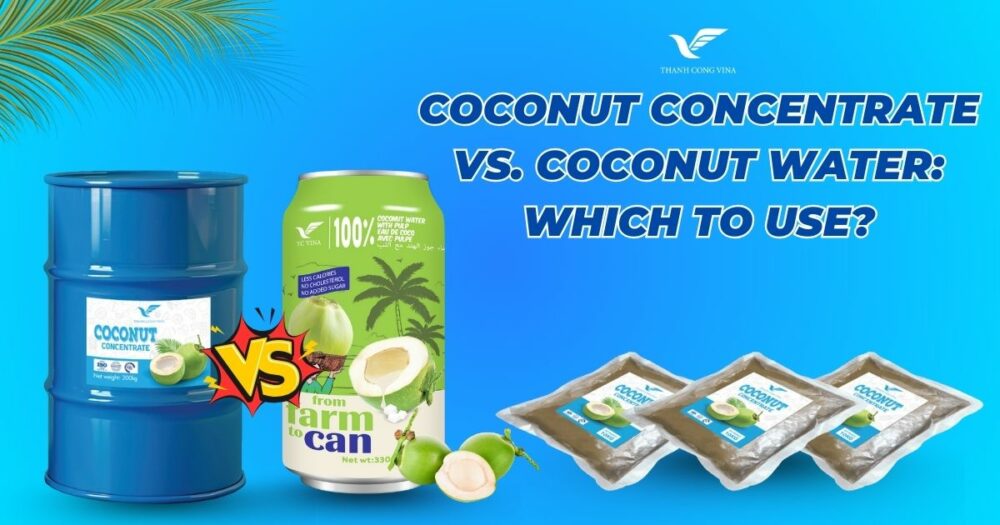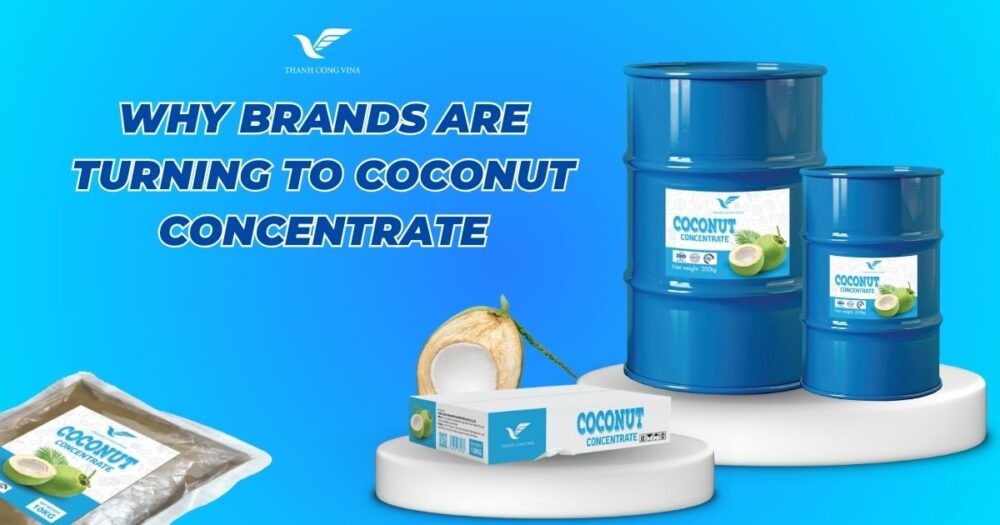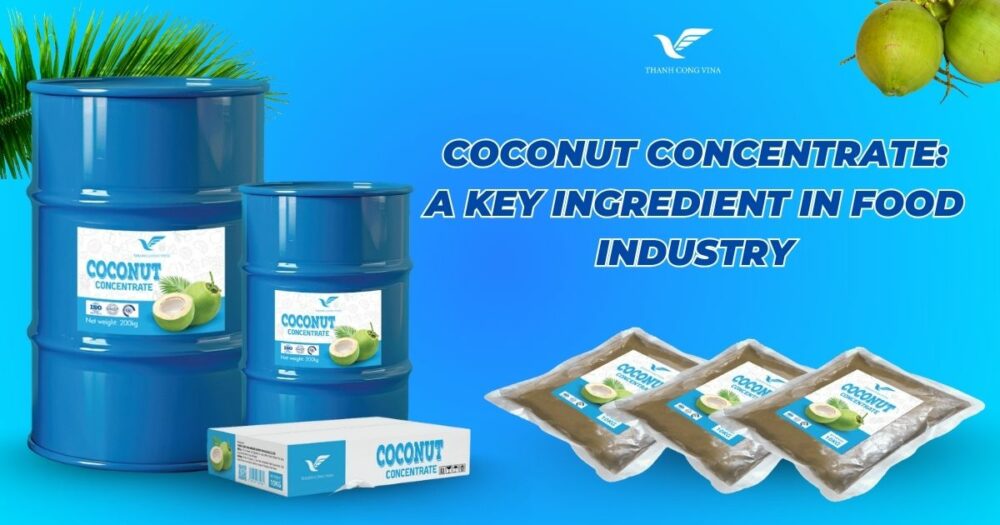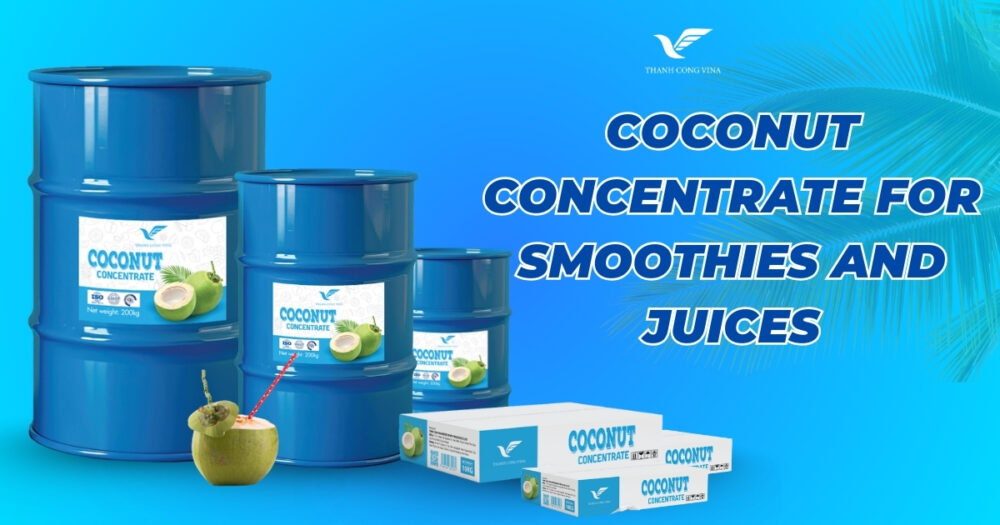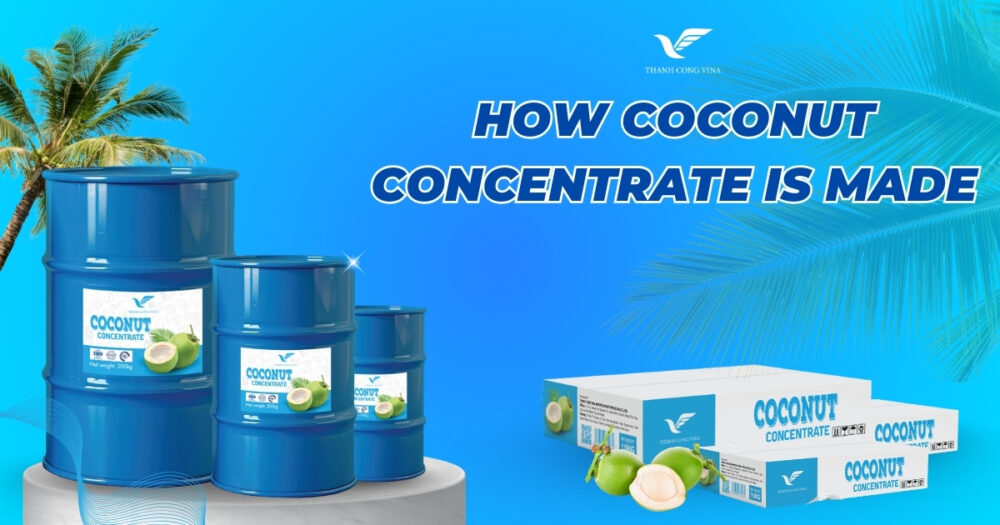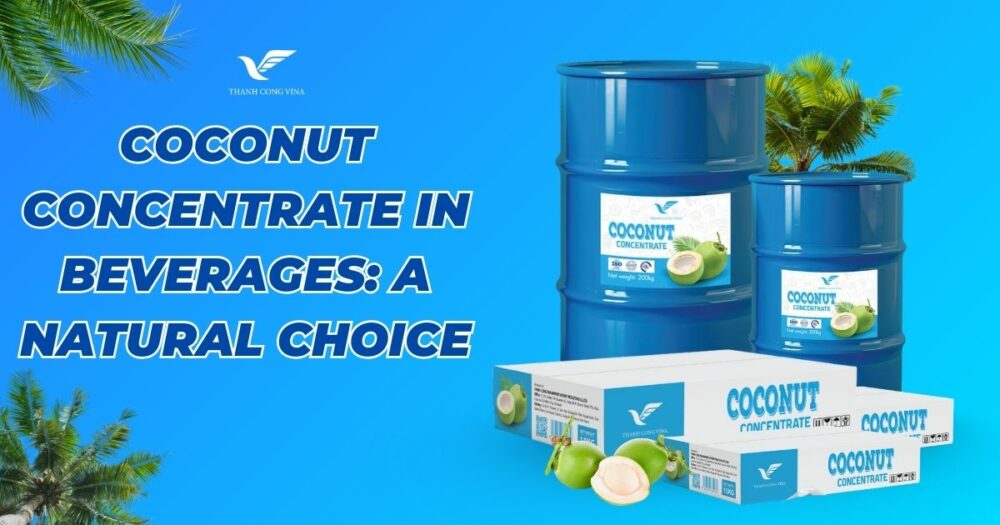Coconuts have long been a symbol of tropical abundance, offering everything from refreshing drinks to nutrient-dense oils. Among the wide range of coconut-derived products available today, coconut concentrate has emerged as a vital player in the global food and beverage industry. Its versatility, long shelf life, and high nutritional value make it not only a consumer favorite but also a cornerstone ingredient in international trade.
In this article, we will explore what coconut concentrate is, why it is significant in the export sector, how companies like Thanh Cong Vina are shaping its role, and what future opportunities lie ahead for this essential product.
1. Understanding Coconut Concentrate
Definition
Coconut concentrate is produced by reducing coconut water through evaporation or vacuum concentration. The process removes a significant portion of the water, resulting in a dense liquid that retains most of the nutrients, minerals, and natural sweetness of the original coconut water.
Difference from Other Coconut Products
-
Coconut water: The raw, clear liquid from young coconuts, refreshing but bulky for shipping.
-
Coconut milk and cream: Made from the grated flesh of mature coconuts, higher in fat, and mainly used for cooking.
-
Coconut concentrate: A condensed form of coconut water, making it lighter to ship, easier to store, and more adaptable for global manufacturing.
Why It Matters in Exports
Because coconut concentrate drastically reduces weight and volume compared to fresh coconut water, it is far more economical for export. Once shipped, it can be reconstituted into coconut water or used in recipes and manufacturing.
2. The Global Market for Coconut Products
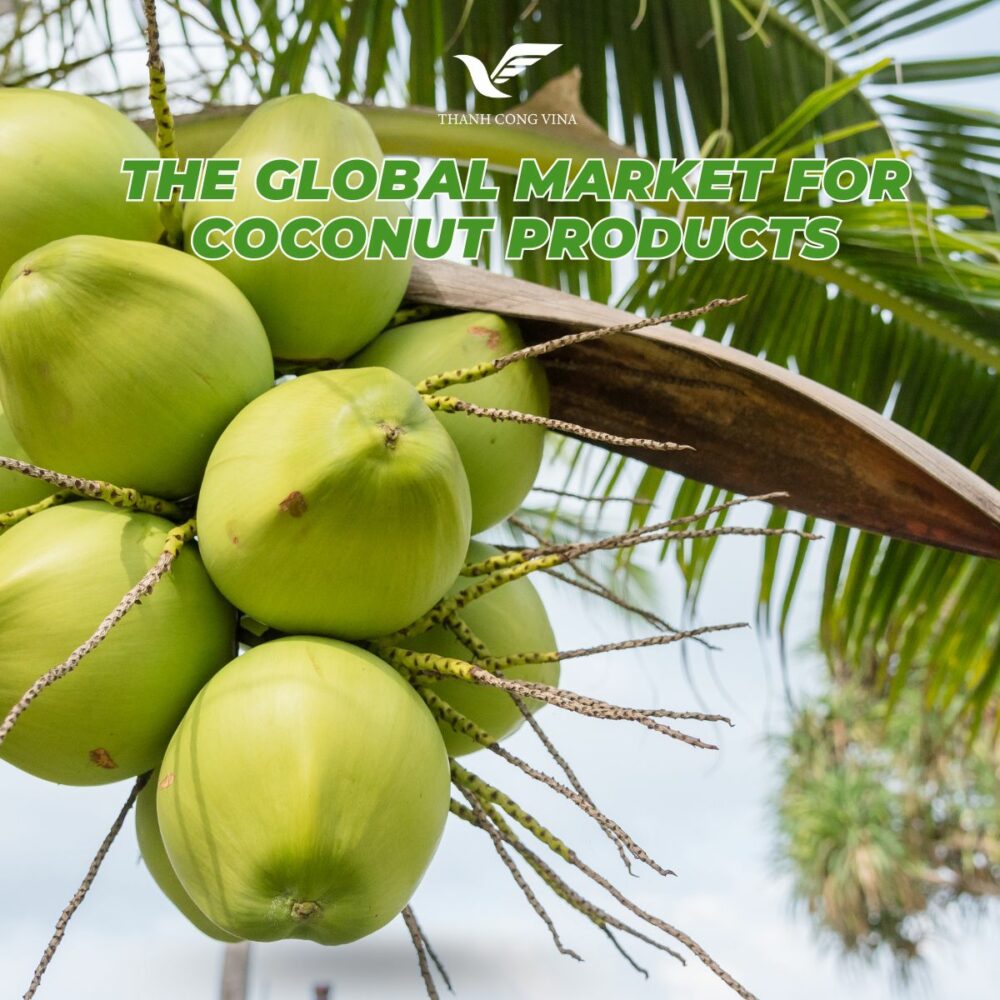
The Global Market for Coconut Products
Growing Demand for Plant-Based Beverages
The global trend toward plant-based and functional drinks has fueled demand for coconut-based products. Coconut water, often referred to as “nature’s sports drink,” is now sold in nearly every major market.
Coconut Concentrate as a Strategic Ingredient
Rather than shipping bulky bottles of coconut water, companies rely on coconut concentrate to serve as the foundation for beverages and food products. This allows for cost efficiency and scalability in international markets.
Key Import Regions
-
North America: Health-conscious consumers seeking natural alternatives to sodas and energy drinks.
-
Europe: Demand for organic and sustainable plant-based products.
-
Asia-Pacific: Rising middle-class populations seeking premium coconut-based beverages.
3. Why Exporters Choose Coconut Concentrate
Cost-Effective Transportation
Shipping concentrated coconut liquid is far more economical than shipping bottled water, as it reduces both volume and weight.
Long Shelf Life
Concentrates last longer than fresh coconut water, making them more suitable for long-haul exports.
Versatility
Once delivered, coconut concentrate can be:
-
Reconstituted into coconut water.
-
Used in juices, smoothies, and energy drinks.
-
Incorporated into sauces, desserts, and vegan recipes.
Consistency
Coconut concentrate ensures a uniform flavor profile, which is essential for global brands that require consistency across batches.
4. Applications of Coconut Concentrate in Export Products
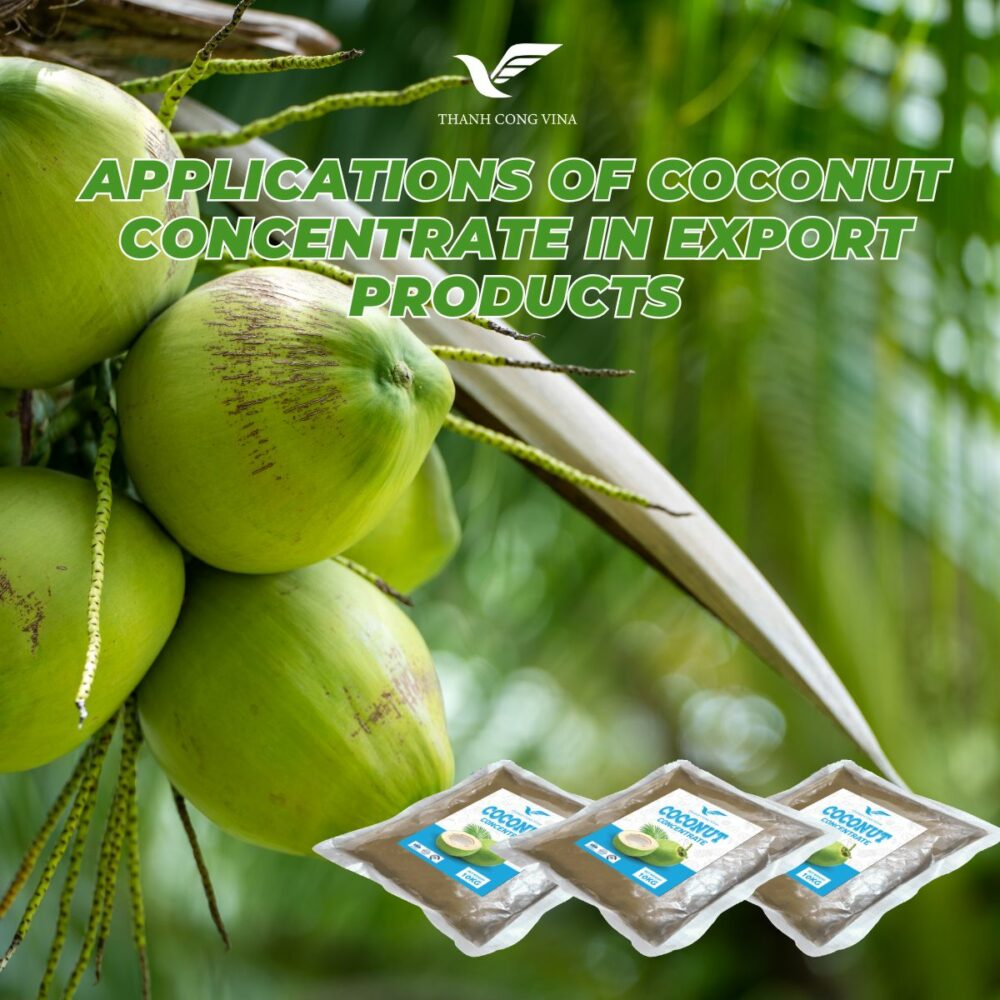
Applications of Coconut Concentrate in Export Products
Beverage Industry
-
Bottled coconut water (reconstituted).
-
Blended juices and smoothies.
-
Sports and isotonic drinks.
-
Functional beverages with added vitamins or probiotics.
Food Industry
-
Ice creams, yogurts, and desserts.
-
Sauces and marinades.
-
Vegan and dairy-free alternatives.
Nutraceutical and Health Products
Coconut concentrate is also being used in health supplements, powders, and wellness shots thanks to its electrolyte-rich composition.
5. Quality Standards in Export Products
International Certifications
Export-ready coconut concentrate must meet global safety and quality standards such as:
-
HACCP (Hazard Analysis and Critical Control Points).
-
ISO certifications.
-
Organic certifications where applicable.
Thanh Cong Vina’s Commitment to Quality
Thanh Cong Vina emphasizes rigorous quality control, from sourcing coconuts directly from trusted farms to ensuring that processing meets international export requirements.
6. Economic Impact of Coconut Concentrate Exports
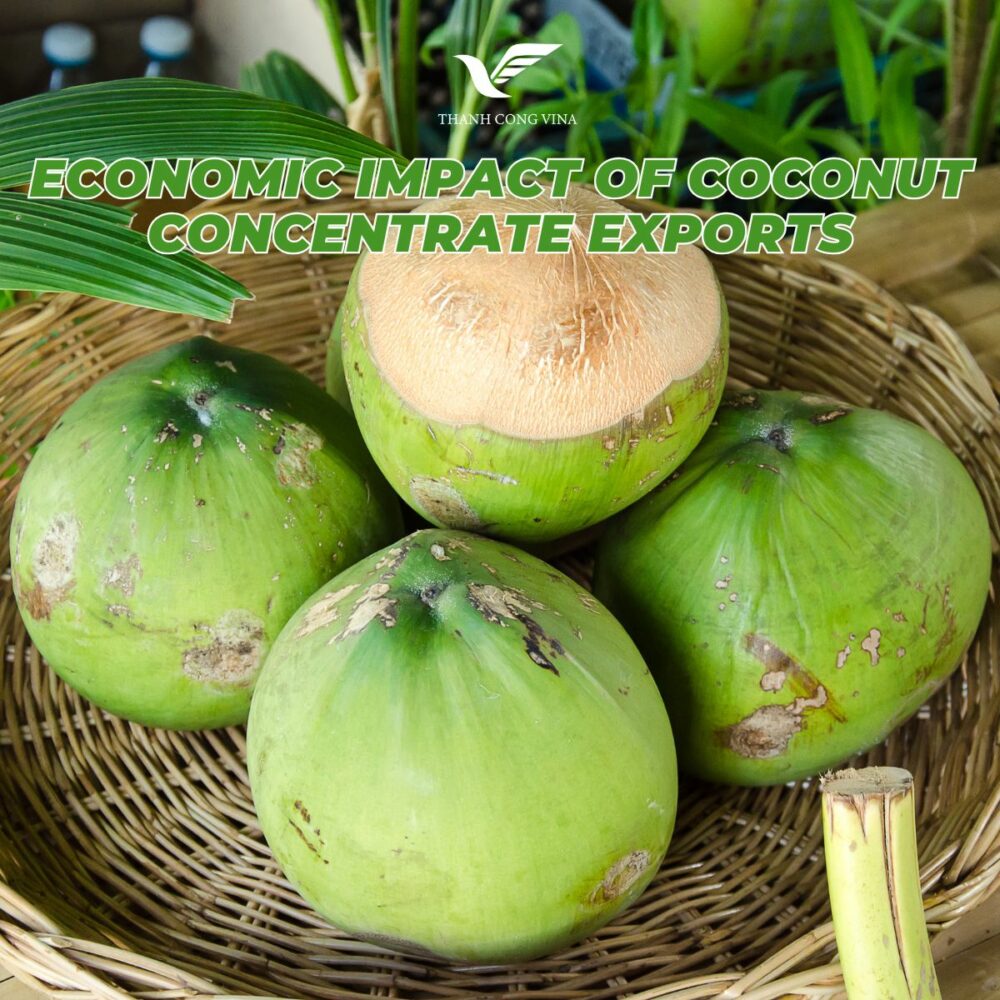
Economic Impact of Coconut Concentrate Exports
Supporting Farmers
The growing demand for coconut concentrate creates stable income opportunities for coconut farmers in tropical regions.
Boosting National Economies
Countries that export coconut products gain significant revenue from international trade. Vietnam, Thailand, and the Philippines are among the leaders in this sector.
Value-Added Products
Concentrates represent a value-added product, allowing exporting companies to capture more revenue compared to selling raw coconuts.
7. Thanh Cong Vina and Its Role in Coconut Concentrate Exports
Company Overview
Thanh Cong Vina has built its reputation as a trusted producer of coconut-based products, specializing in coconut concentrate for both domestic and international markets.
Export Strategy
The company leverages modern processing facilities, strict quality control, and partnerships with global distributors to ensure its coconut concentrate meets the highest standards.
Sustainability Efforts
Thanh Cong Vina invests in eco-friendly production practices and supports local farmers to ensure that growth in exports also benefits communities and the environment.
9. Trends Shaping the Future of Coconut Concentrate Exports
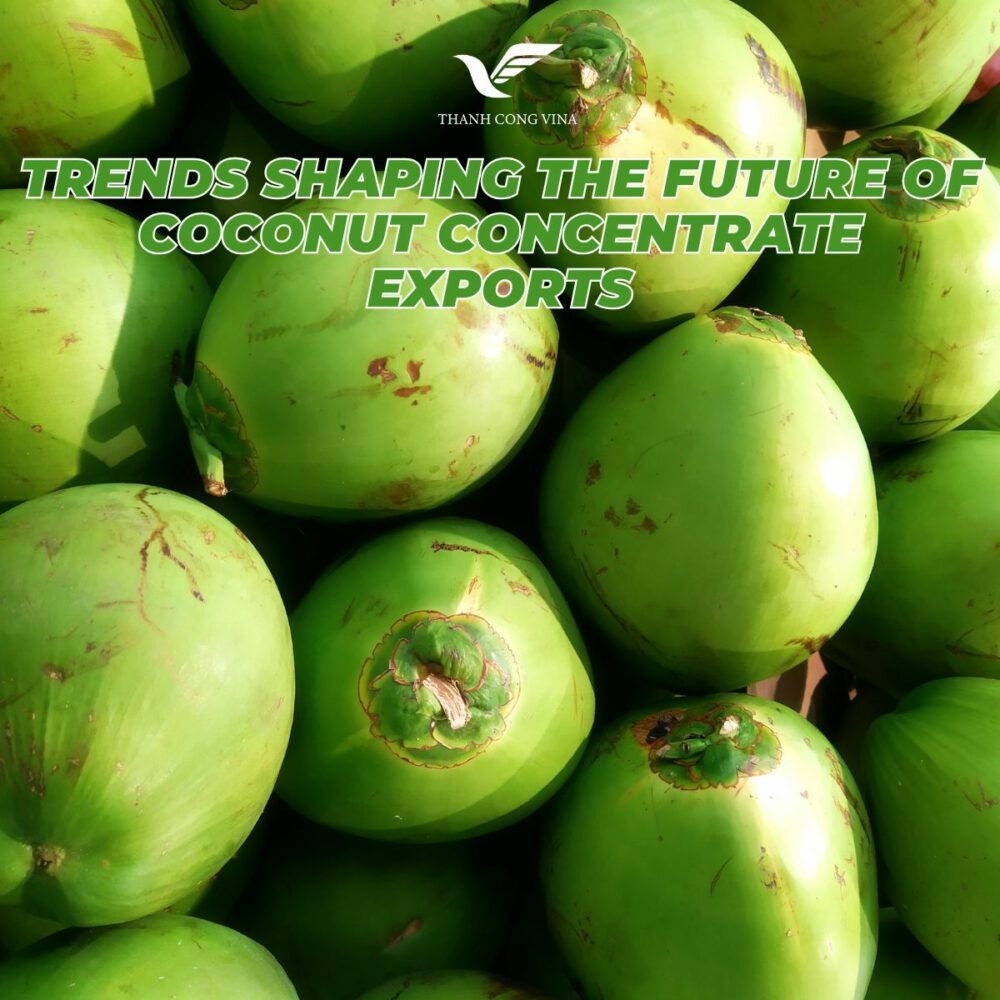
Trends Shaping the Future of Coconut Concentrate Exports
Rising Veganism and Plant-Based Diets
As more consumers adopt vegan lifestyles, coconut concentrate will remain a preferred dairy alternative and natural sweetener.
Innovation in Functional Beverages
Coconut concentrate will increasingly be used as a base for fortified drinks that include added protein, vitamins, and probiotics.
Focus on Sustainability
Eco-conscious consumers are pushing exporters to adopt recyclable packaging and transparent sourcing practices.
10. Practical Advantages for Importers and Manufacturers
Customization
Manufacturers can adjust the dilution of coconut concentrate to suit different product lines and consumer preferences.
Flexibility in Storage
Because it takes up less space and lasts longer, coconut concentrate gives importers and distributors greater flexibility in managing supply chains.
Profitability
Exporting coconut concentrate enables businesses to scale production, reduce costs, and maximize profitability in competitive markets.
Conclusion
The role of coconut concentrate in export products is undeniable. It bridges the gap between tropical coconut farms and international consumers, enabling global access to the nutritional and functional benefits of coconuts. For importers, it ensures cost-effectiveness, versatility, and consistency. For exporters, it creates opportunities for revenue, innovation, and sustainability.
Thanh Cong Vina stands as a leader in this space, offering premium-quality coconut concentrate that meets global standards while supporting sustainable farming practices. As the world continues to embrace natural, plant-based solutions, coconut concentrate will remain at the forefront of international trade, shaping the future of food and beverage exports.

